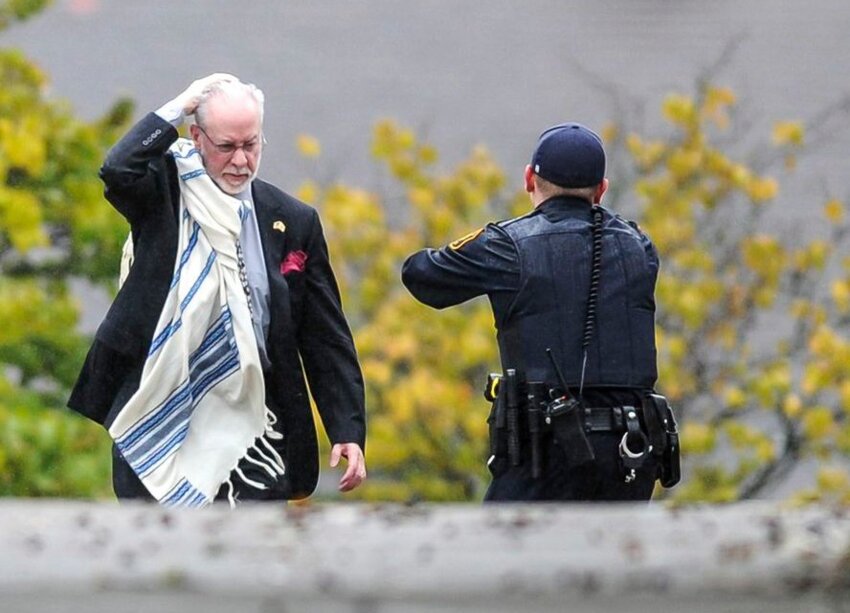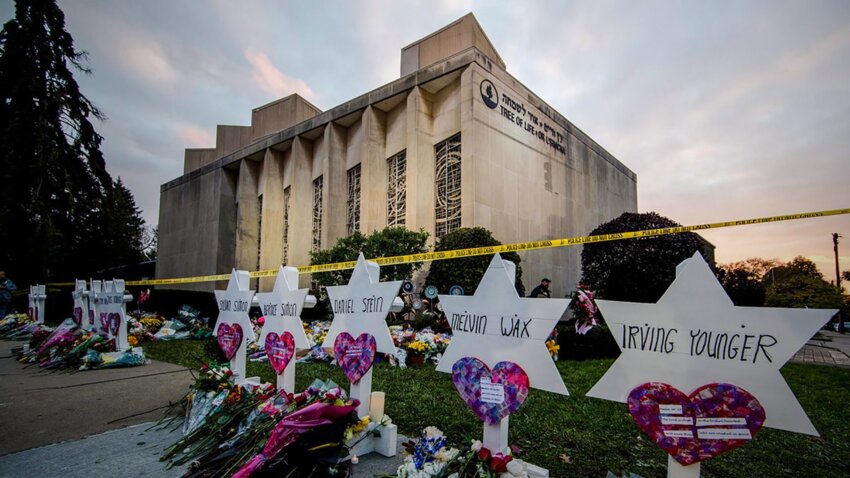Patrice O’Neill is on a quest to destroy hate. At a time when hate crimes and hate speech are shockingly at the forefront of public discourse and demonstration, she’s taken on this task not with a sword but with a film crew.
O'Neill is the executive producer of the documentary “Repairing the World: Stories from the Tree of Life,” which takes the audience to Pittsburgh, Pennsylvania, in the aftermath of the Tree of Life synagogue murders. It offers an intimate look at how victims’ families and the broader community grieved and healed. It’s a powerful film, currently appearing on PBS stations and PBS.org.
In addition to being a filmmaker, O'Neill is the CEO of The Working Group, a nonprofit based in Oakland, California, and the founder of Not in Our Town (NIOT), “a movement to stop hate, racism and bullying.” NIOT’s origin story began more than 30 years ago in Billings, Montana, where white supremacy was on the rise.
“The police chief at the time, who was an early adherent to community policing, said, ‘I can’t do this alone. This is a community problem, not just a law enforcement problem.’ Other local leaders said, ‘Yes, let’s do something.’ So, when a Black church with a very small congregation saw skinheads showing up at the church, members of other denominations began attending services at the church, and the skinheads went away,” O'Neill recalled.
“When a Native American woman’s house was plastered with racist graffiti, 30 members of the painters’ union came to paint over it, and there were 100 neighbors there to watch,” she continued. “People in the town were learning what it looks like to show up for each other, to stand their ground when this happens.”

When someone threw a brick through the bedroom window of a six-year-old Jewish boy who’d displayed a menorah in his window for Hanukkah, the Billings Gazette printed a full-page menorah in the paper. The townspeople cut them out or printed their own and displayed them at their own homes, as depicted in the film “Not in Our Town.”
“Obviously, anti-Semitism has been here for thousands of years, but this was new. Now, there was a sort of an online on-ramp to spreading anti-Semitism,” she said.
On Oct. 27, 2018, 11 people were killed and six others wounded in a mass shooting at Tree of Life synagogue.
“We wanted to make a long-term commitment to the story, but we knew we couldn’t do it without the families. If they didn’t want to do it, we would not make the film,” O’Neill said.

“In the case of traumatized communities, it’s so important to listen to them, to take their cues about what they want to reveal, how they want to reveal it, and when they want to reveal it,” she said.
The documentary does not focus on the crime or the criminal. Instead, it gives viewers an intimate look at how the community came together to mourn, heal and resolve to be better connected, less divided.
Public media afforded a platform for NIOT films.
“The kind of films we make, the way we make our art, has always been deeply connected to the mission of public television,” she explained. They live beyond PBS broadcast, too — for classroom instruction and public events. WHYY in Philadelphia and WQED in Pittsburgh hosted screenings and discussions about the film.
“I think there’s not only the sense of purpose, but there’s a convening power of public media and an ability to bring communities together to tackle some really difficult issues in our country,” she said.
 Gretchen A. Peck is a contributing editor to Editor & Publisher. She’s reported for E&P since 2010 and welcomes comments at gretchenapeck@gmail.com.
Gretchen A. Peck is a contributing editor to Editor & Publisher. She’s reported for E&P since 2010 and welcomes comments at gretchenapeck@gmail.com.
Comments
No comments on this item Please log in to comment by clicking here